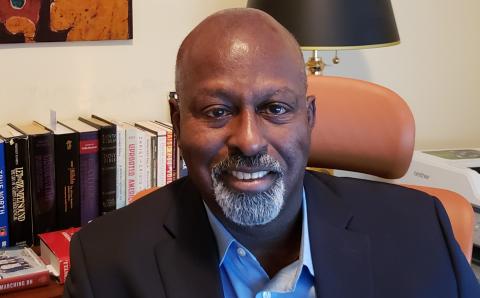[If you’re not sure what synod is, read this first.]
The headliner of the Christian Reformed Church’s annual synod doubtless will be the human sexuality report (officially, the report of the Committee to Articulate a Foundation-laying Biblical Theology of Human Sexuality). The long-awaited report was released more than a year ago, and churches and classes have responded voluminously, sending more than 60 overtures (requests) and communications to Synod 2022. Some overture writers want the report adopted, some want it rejected, some want it partially adopted, and some want more study or additional advice on implementation.
The report affirms the CRC’s 1973 position on homosexuality that states that same-sex attraction is not sinful but acting on that attraction is. The report addressed a range of sexual matters, including premarital sex, extramarital sex, adultery, polyamory, pornography, and homosexual sex. Part of the study committee’s mandate was to evaluate whether future synods should consider a status confessionis with respect to same-sex behavior and other issues identified in the study. The committee, pointing to Heidelberg Catechism Q&A 108 and its condemnation of “all unchastity,” said the church's teaching on these matters already has confessional status.
(See also Sexuality Report Released to Churches, Suggests Historical Position is Already Confessional, Nov. 25, 2020.)
Whatever Synod 2022 decides, the discussions around the report will be the most significant and controversial synod deliberations in a generation.
Related to that discussion will be what to do about Neland Avenue CRC’s appointment of a deacon who is in a same-sex marriage. That action is out of step with the denomination’s current position on same-sex relationships, but Neland has said that position represents only pastoral advice. A communication to synod from Classis Grand Rapids East describes Neland’s decision-making process (that classis is the regional group of Christian Reformed churches to which Neland belongs). Multiple overtures ask that synod discipline Neland for breaking covenant with the denomination.
Governance Restructure
Delegates will also deliberate about the leadership of the Christian Reformed Church’s administrative and governance structure. There are reports about structure and multiple overtures responding to the reports. Major changes have taken place already, including new leaders, new job descriptions, revision of mandates, and more—all without the approval of a synod. The result is that the new leadership position of general secretary has yet to be approved by Synod 2022, but a candidate for the not-yet-approved role already has been recommended to synod and is presently transitioning into that position.
How could this happen? In a word, COVID. For the first time in the CRC’s history, not one but two annual synods were canceled. The Council of Delegates (which acts as synod’s interim committee) met in special sessions in 2020 and 2021 to handle matters that could not wait until 2022.
Governance restructure decisions were deemed too important to defer because legal advice obtained by CRC-Canada directors suggested the existing structure didn’t adequately meet Canada Revenue Agency rules regarding not-for-profit organizations. CRA requires that direction and control of resources obtained in Canada must be retained in Canada. That standard is not met if the bodies that make those decisions (the Council of Delegates and the CRC annual synod) are 75% American. (See Governance Restructuring Gives CRCNA in Canada More Ministry Control, Feb. 22, 2020.)
The road to restructuring has not been smooth. Potholes included disagreement among Canadian churches about solving the tax dilemma, the dismissal of the Canadian ministries director, and resulting questions over the decisions made by the CRC-Canada board. Along the way, that road widened to include a decades-old discussion about the desire of the CRC in Canada to determine its ministry priorities and activities without undue influence from the much larger U.S. portion of the CRC. (See also “The SALT Model, and the Focus on Ministry Contextualization,” an As I Was Saying commentary by co-facilitators of the Structure and Leadership Taskforce steering committee.)
Making sense of it all at Synod 2022 will not be easy. The Agenda contains not only several consecutive structure iterations but also multiple overtures and communications coming from Canadian churches that object to decisions already made.
But Wait—There’s More
Same-sex marriage and governance restructuring are hardly the only things on the agenda. In fact, the Agenda for Synod 2022 is so lengthy—more than 1,300 pages—that it’s been split into two volumes. The first volume contains all the items from 2020 and 2021 that were deferred to Synod 2022. The second volume contains all the items that would have been on Synod 2022’s agenda apart from all the deferred items. Other topics include the following:
>>Ministry Shares
Synod 2019 recommended that Synod 2020 approve an entirely new way of funding ministries at the denominational level. The Council in a special session in 2020, decided to go ahead with the changeover, noting that it had been thoroughly studied by the churches already.
Instead of setting a budget and then asking congregations to remit a specific amount per member, churches would instead be asked how much they can pledge to support denominational ministries; the budget would be then set based on the total amount pledged. Results since then have been mixed, with some churches that had never before contributed making pledges and some churches pledging less than what would have been expected under the old system.
The upshot is that financial support for shared ministries is down and budgets have had to be adjusted accordingly.
>>Abuse of Power
Synod 2019 made several decisions to help prevent church leaders from abusing their power in their congregations and in denominational ministries. Three years in, progress will be reported to Synod 2022.
>>Heresy, Catechisms, Bible Translations
After a lengthy discussion in 2019 about a church in Michigan teaching heretical views on mixed race marriages (kinism), synod asked the Council of Delegates to convene a group to define the word “heresy” as used in the denomination. The group’s report was available in 2020 but was deferred to this year. The report’s usefulness might be tested right away because Classis Illiana (a group of churches) is asking to declare as heresy any denial that Jesus Christ’s life, death, and resurrection provide a substitutionary bearing of God’s wrath on our behalf because of the just punishment we deserve for our sin.
Synod 2019 requested that the denomination’s Faith Formation ministry evaluate The New City Catechism for use by the churches. That evaluation will come to this year’s synod. The report provides its review of the catechism and also provides a blueprint for how such documents can be evaluated.
Synod 2022 also will receive a report from the re-established Bible Translations Committee about how it evaluates new translations.
What Not to Watch For
After a couple of preliminary sessions, there won’t be a Zoom (video conferencing) screen in sight!
Additionally, two study committee reports that would have come to a synod by now have been deferred to 2023: A report on ecclesiastical marriage and a report on bivocational ministry. (See also “Report Calls the CRC to Catch Up with Trend of Pastors Holding More Than One Job,” Nov. 25, 2020 and “Don’t Sanction Marriages without the State, Report Urges,” Nov. 25, 2020.)
And don’t look for a report on the history and rationale for making decisions about political and justice issues that Synod 2019 had asked for from the Council. The Council said that, due to the gravity and complexity of the issue, the task is better given to a study committee appointed by synod itself.
How Will It All Get Done?
The Council approved some measures to streamline some of the standard synod activities. Prior to synod convening in person June 10, an online meeting will take place May 25 to allow delegates to elect officers and confirm assignments of delegates to synod’s various advisory committees. Those advisory committees will hold introductory meetings online, but all deliberations will happen in person.
Instead of delegates having an essentially free day Sunday free from activities other than synodical worship, delegates will convene to hear from ecumenical guests, be part of prayer and conversation groups, and hear reports from denominational mercy and justice ministries and the state of the Church Address from executive director Colin P. Watson Sr..
Some of Synod 2022’s agenda is designated as consent agenda material, to be received as information by way of a single recommendation.
Synod 2019 also made some decisions about synod operation that should help make 2022’s gathering more efficient. These include more training for all delegates prior to synod, new rules about what kind of amendments to motions are allowed, and a three-minute limit on delegate speeches.
Before you plan a visit to Grand Rapids, Mich., where Synod 2022 will meet at Calvin University, be aware that Synod 2022’s not-yet-elected officers will consider closing the gallery for the deliberations on the human sexuality report. Viewers still would be able to watch via live streaming, but the officers will consider whether to delay that stream by 20 minutes to prevent viewers from unduly influencing synod delegates through social media. The Reformed Church in America imposed those constraints during contentious deliberations in 2021 and reported positively on that experience.
Synod 2022 is meeting at Calvin University in Grand Rapids, Mich., from June 10-16. Find daily coverage from The Banner news team at thebanner.org/synod, download the Banner app on your mobile device, or follow The Banner Magazine on Facebook. On Twitter follow #crcsynod or twitter.com/crcna. Synod is the annual general assembly of the Christian Reformed Church (it did not gather in 2020 or 2021). Connect to the meeting’s livestream, read advisory committee reports, and find other resources at crcna.org/synod.
About the Author
Gayla Postma retired as news editor for The Banner in 2020.







